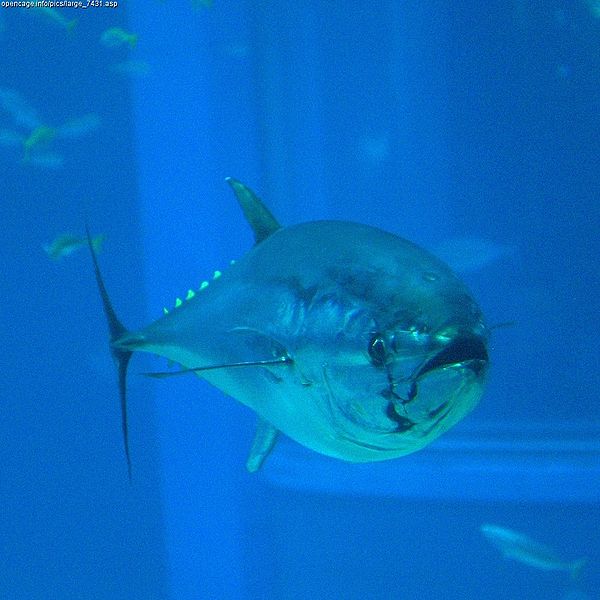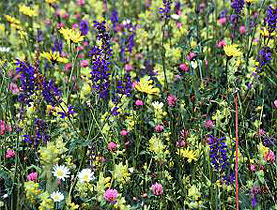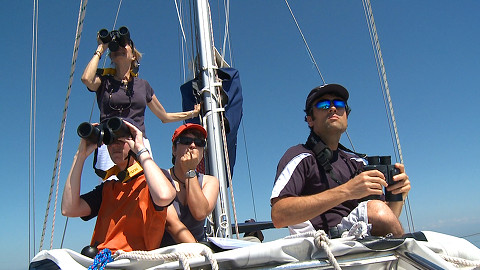Trade concerns prevail at wildlife talks

There was disappointment among the Swiss after the Cites wildlife meeting in Doha ended with trade interests for lucrative marine species overriding protection efforts.
Proposals to help bluefin tuna and sharks such as the hammerhead were rejected, largely owing to lobbying by Japan where bluefin tuna is a sushi speciality.
Around 175 countries attended the Convention on International Trade in Endangered Species of Wild Fauna and Flora, which closed in Qatar’s capital on Thursday. The aim was to discuss which species should be given special protection.
Members rejected a proposal to ban international trade in bluefin tuna, whose numbers have dropped by 80 per cent, according to some estimates. Switzerland had supported a ban.
Swiss delegation co-leader Mathias Lörtscher said that it had been decided that the International Commission for the Conservation of Atlantic Tunas, (ICCAT), which regulates the trade, was enough.
Cites help
“I was a bit disappointed as Cites would have been an additional help to conserve the species and it wouldn’t just have been left to an organisation which has in the past proven not able to look after the stocks of the species,” Lörtscher told swissinfo.ch.
He said that ICCAT had on Thursday reiterated that bluefin tuna would be one of its priorities.
However, this meant that if the body and its members did not keep to their statements “next time they will have no excuses”, added Lörtscher, who is the head of the Cites management authority in Switzerland.
The outcome is seen by many as a victory for Japan, which had lobbied hard against a ban over fears that it would devastate the home fisheries industry. Japan buys around 80 per cent of the bluefin tuna catch to make a highly prized sushi.
Extra protection measures for several types of shark, including the hammerhead, oceanic whitetip and porbeagle – sought after for their fins or meat – were also thrown out. It was argued that regional bodies could look after stocks.
Commercial interests
Lörtscher said there had been data to support the proposals. “So science has not won, what has won are unfortunately the commercial aspects,” he said.
His views were echoed by the Cites Secretary General Willem Wijnstekers, who said that science had effectively gained a $ to become $cience.
“There is an enormous economic interest in catching and trading these species, and a Cites piece of paper is really a nuisance [for traders],” he told media at the end of the meeting.
For non-government organisation WWF Switzerland, the bluefin tuna ban would have been a “big step forwards”.
“Now we have to continue our work with the regional organisations and also with consumers to ask them not to consume bluefin tuna until it has recovered,” Mariann Breu, a fish expert at the organisation, told swissinfo.ch.
A small amount of the tuna still finds its way onto the Swiss market. Restaurants and retailers must also act, added Breu.
Ivory controversy
As for ivory, always a controversial subject among Cites members, calls to relax a trade ban on the substance were resisted.
Tanzania and Zambia wanted to sell their surplus stocks, which come from natural deaths or controlled culling of problem animals. But opponents said this would boost poaching.
The Swiss believe that if countries take care of their elephant populations they should be able to sell some ivory for conservation purposes.
They had supported the countries’ other request to downgrade their elephant populations from Appendix I, the highest protection listing, to Appendix II, which allows some regulated international commercial trade. This was voted out.
Bernhard Arnet, president of the Friends of the Serengeti Switzerland association, was pleased with the outcome on the ivory ban in particular, saying it was “a big day for elephants”.
Past experience, progress
“The claim that an increased offer which has been boosted through ivory sales would lower demand and prices has been shown to be wrong in the past,” he said.
Arnet pointed to the experience of the four southern African countries allowed such sales in 2008. “In the space of a year poaching increased. You can’t really see the exact provenance of the ivory being sold or offered to you as a gift .”
Summing up the conference, Lörtscher said despite the disappointments over marine life, progress had been made elsewhere, such as in protecting commercially important rosewood. A Swiss proposal to issue electronic permits was also moving forward.
“This means we can ease the burden of administrative bodies to do more important work,” he said.
Isobel Leybold-Johnson, swissinfo.ch (with input from Jean-Michel Berthoud)
Cites (the Convention on International Trade in Endangered Species of Wild Fauna and Flora) was adopted in 1973 to regulate international wildlife trade and to ensure that it remains at a sustainable level. It has 175 parties.
Switzerland signed up at the beginning and is the depositary state of the agreement.
Its position is that it supports the sustainable use of natural resources but also supports bans where species have to be protected.
Lörtscher was accepted as a member of the Animals Committee of experts during the conference.
Other key meeting decisions: more help for rhinos, but proposals to step up protection for polar bears and coral were thrown out.
Cites provides three regulatory options:
Appendix I: animals and plants are banned from international commercial trade except in very special circumstances. It contains around 530 animal species and a little over 300 plants. Included are: all the great apes, big cats such as cheetahs, the snow leopard and tigers, all sea turtles as well as some cacti and orchids.
Appendix II: commercial international trade is permitted but is strictly controlled on the basis of Cites permits. Covered are 4,460 animal and 28,000 plant species, including all primates, cats, cetaceans, parrots, crocodiles and orchids not listed in appendix I.
Appendix III: all species protected within the borders of a member country. This means that a country calls on others to help it regulate trade of its protected species by making the issuing of a certificate of origin necessary for trade. 290 species are listed.

In compliance with the JTI standards
More: SWI swissinfo.ch certified by the Journalism Trust Initiative





You can find an overview of ongoing debates with our journalists here . Please join us!
If you want to start a conversation about a topic raised in this article or want to report factual errors, email us at english@swissinfo.ch.